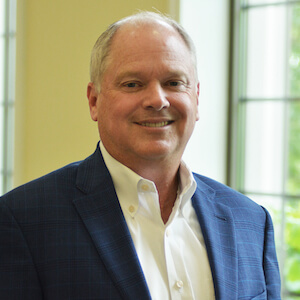Blog
Summer Time Reality Check
 William J. Acton, Senior Partner at Advancement Partners
William J. Acton, Senior Partner at Advancement Partners

In Catholic school advancement, as in life, there is a big difference between what we need and what we actually can accomplish. How come so many schools don't realize this when setting advancement goals?
Not long ago we received a call from an elementary school that was “ready” to launch a monstrous capital campaign. They needed to raise $20 million to build a much-needed and expansive facility.
"We're stuck," the development director said. "We have promised to get this done. We have our campaign theme and print materials. We have our drawings and our contractor. We have a campaign committee. Now we just need someone to help us raise the money."
Our follow-up question was simple. "Well, how much can you raise? Have you figured that out?"
And then there was silence on the other end of the phone.
In Catholic school advancement, as in life, there is a big difference between what we need and what we actually can accomplish. How come so many schools don't realize this when setting advancement goals? Just because we need $20 million doesn’t mean our constituency has the right combination of ability and willingness to give $20 million.
Do any of these scenarios ring true to your school?
- The board sets the annual fund goal each year – by either bumping it 15% over last year's goal or simply plugging in a dollar figure that will "balance" the overall budget. There is no consultation with advancement or research of giving data or potential
- The capital campaign team sets the funding goal at, yes, $20 million because "that's what we need" or – worse – that's what the other school in town raised.
- Leadership plugs Bill Gates or Elon Musk as potential donors into the campaign pyramid at $5 million, because technology is a centerpiece of your campaign, and you have a really, really good plan that will inspire both of them.
- The development director is drafting a proposal to a major airline – to sell "naming rights" to the external roof of the field house, just 15,000 feet below (sort of) the flight path of the airport.
Maybe those scenarios seem silly to you, but I can assure you that each was real. And there are many other versions of the same type of thinking…magical thinking. Unicorns aren't real and you can’t wish things true, especially in our business.
As you work through your development plans and strategies this summer, be real, as the old saying goes.
- If last year’s annual fund was buoyed by a surprise estate gift of $150,000, you can't plan to build this year's goal with that gift total in mind, right?
- Should you really budget aggressive increases in the annual fund when many of your donors have been hammered by the economic downturn?
- It’s much more realistic to set a campaign goal at $6 million if you "predict" that your top 10-12 prospects will commit approximately $4 million in a well-run campaign.
We are fans of setting big goals. We urge you to do the same; make your goals "stretch" goals…but ultimately, make them "doable."
So what happened with that elementary school in search of a $20 million campaign? We started by doing a Feasibility Study – helping them see how much they could raise ($10 million) and what strategies they should employ to maximize philanthropy. With that information they moved into next steps:
- Engaging top prospects in shaping the final vision and case for support.
- Scaling back the project and mapping a two-phased approach to building the facility.
- Taking on limited (and manageable) long-term debt, on top of philanthropy, to make the project a reality.
Ultimately, through tremendous leadership, hard work and generosity, they raised $12 million in a campaign – enough to complete Phase I and some elements of Phase II. In 2 years they will begin preparations for Phase II, with a whole new batch of prospects and the right research and data to get it done.
So this summer, as you map plans for the 2022-23 school year, get your board to join you in a Reality Check. You won’t accomplish all you need – but you will get a lot done, and the school will be a lot healthier for it!
Posted on: June 30, 2022
